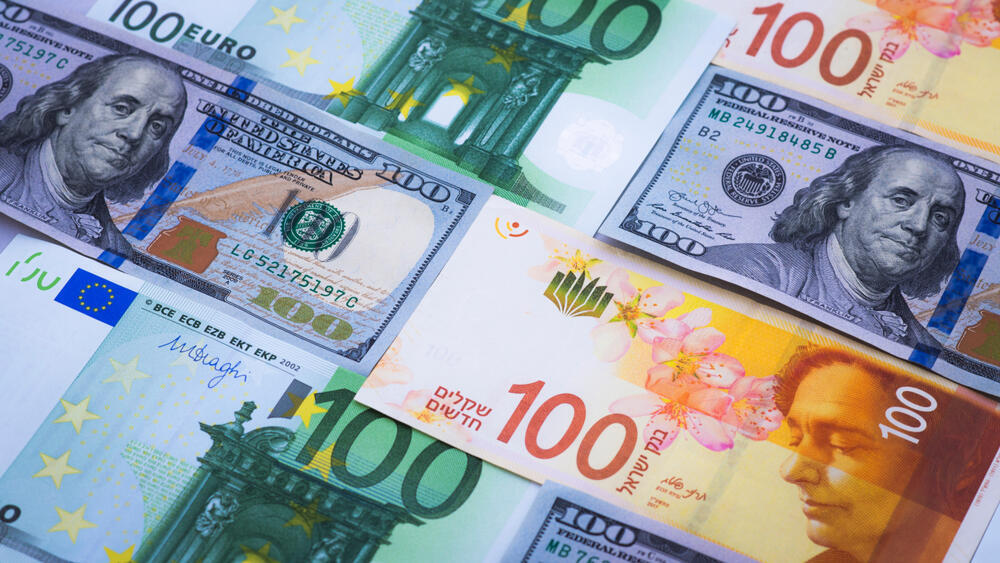Getting your Trinity Audio player ready...
The shekel saw a significant boost against the dollar and euro on Wednesday, with the Israeli currency trading around 3.71 shekels to the dollar, a 1.3% increase from the representative rate of 3.78 set on Monday before the Tisha B’Av fast. The euro also weakened against the shekel, trading at approximately 4.08 shekels, down from the pre-Tisha B’Av rate of 4.13.
Meanwhile, the Tel Aviv Stock Exchange opened with gains in its leading indices. The TA-35 and TA-125 indices both rose by 1.1%, the TA-90 by 1.5% and the TA-Finance index by 2%. Delta's stock surged 9% following the release of its earnings report.
Analysts attribute the shekel's strength to the possibility of significant progress in a hostage release deal at Thursday's planned summit in Doha, coupled with Iran’s assurance to the U.S. that it would refrain from direct military retaliation against Israel if an agreement is reached. They predict that stock prices will continue to rise on Wednesday and Thursday. However, they caution that a failure at the summit could lead to a sharp reversal, weakening the shekel and causing steep declines in the stock market early next week.
Global investors are also awaiting U.S. inflation data, set to be released at 12:30 p.m. UTC, with expectations that the Federal Reserve may cut interest rates in September due to slowing inflation.
In addition, Israel’s Consumer Price Index (CPI) for July is expected to be published on Thursday, with forecasts predicting a rise of between 0.4% and 0.5%, potentially pushing the annual inflation rate to 3%.
Yossi Freiman, CEO of Prico Risk Management and Investments, noted that Fitch's decision to downgrade Israel's credit ratings could prompt other credit rating agencies to follow suit. "A credit rating downgrade would increase Israel's debt costs, as the higher risk reflected by the downgrade would lead to higher interest rates on foreign credit markets. More critically, it could also impact the credit ratings of Israeli companies," Freiman warned.


